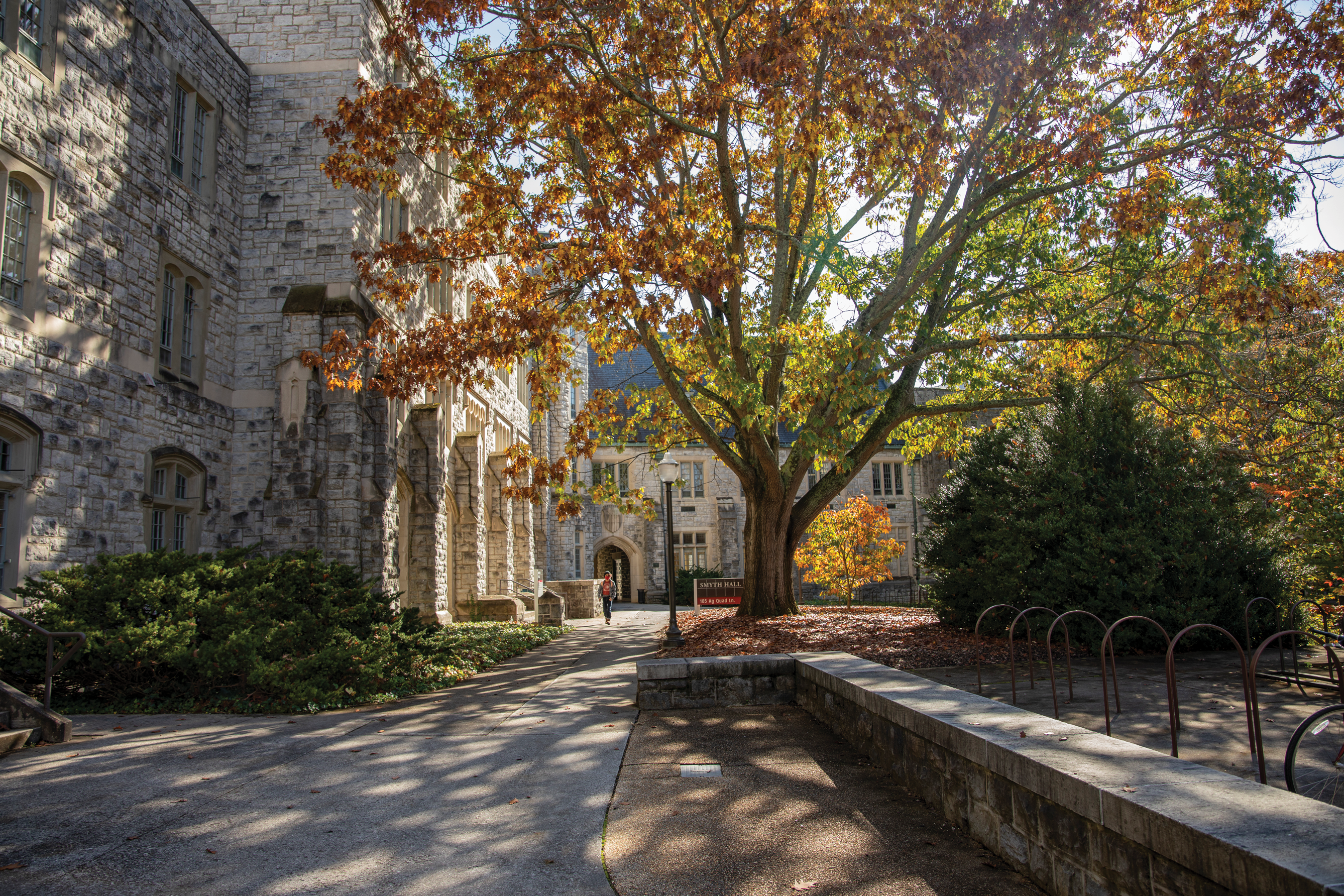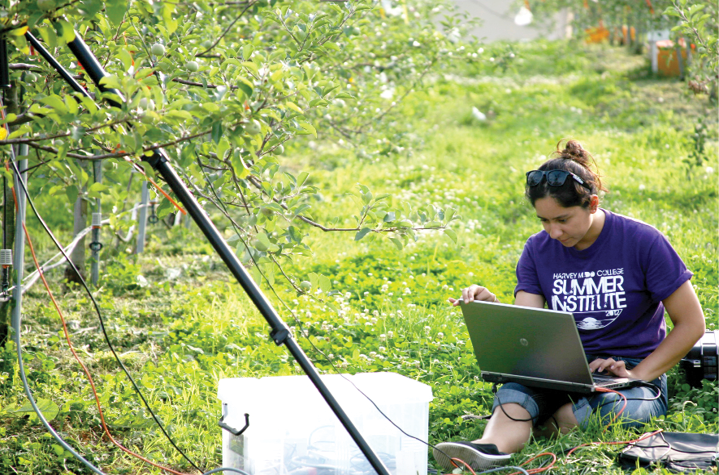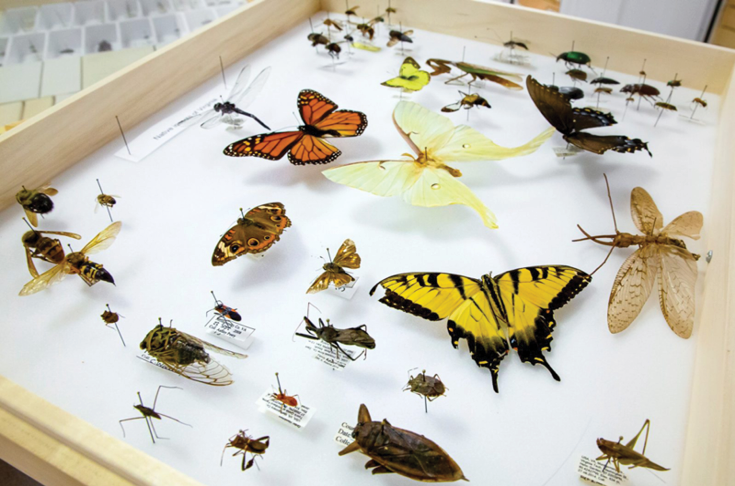Brewing up Fightin’ Hokies
Brewing up Fightin’ Hokies

"This unique partnership goes beyond a traditional trademark license agreement and supports a campus-wide initiative to take research inventions, and, in this case, a beer recipe, from discovery to market."
– Brandy Salmon, Associate Vice President for Innovation and Partnerships
Virginia Tech’s roots in agricultural research sparked a new partnership with Hardywood Park Craft Brewery in Richmond, Virginia, resulting in a licensed Virginia Tech beer — Fightin’ Hokies Lager.
Virginia Tech’s brewhouse and malting system are cornerstones of the Department of Food Science and Technology’s Innovation Collaboratory, a space where industry meets research. In 2017, the department's fermentation program was one of the first programs in North America to earn recognition from the Master Brewers Association of the Americas.
Fightin’ Hokies Lager is a classic Munich-style Helles lager with a balance between pleasant malt sweetness and herbal noble hop character. At five percent alcohol by volume, it is clean, crisp, and refreshing.
The bright, golden beer will be distributed in the spring of 2021 and future beers stemming from the partnership are brewing.
Computing Innovation Fellow will work to advance the industry
Agriculture has always been in Brianna Posadas’ blood. Her family immigrated to the United States through the Bracero Program from Mexico and her abuelos and tios were field workers.
Posadas joined the Department of Agricultural, Leadership, and Community Education in January as a prestigious Computing Innovation Fellow — one of only 59 selected across the country. The program is a career-enhancing bridge experience for recent and soon-to-be Ph.D. graduates in computing.
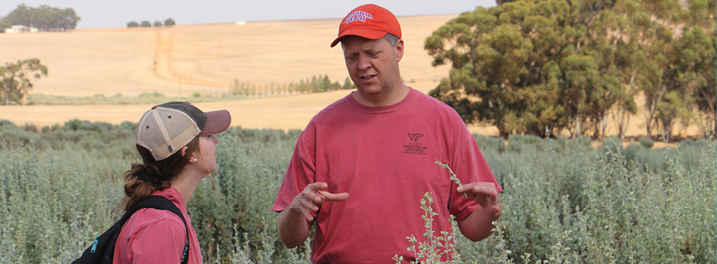
New CALS leaders
A number of leaders assumed new roles across the college this year. Stella L. Volpe (’87, ’91) was named head of the Department of Human Nutrition, Foods, and Exercise, and Dwayne Edwards was named the head of the Department of Biological Systems Engineering. Renee Boyer (’03, ’06) was named interim head of the Department of Food Sciences and Technology after Joe Marcy stepped down. Across the commonwealth, Mark Reiter (’01, above) was named director of the Eastern Shore AREC.
4-H goes virtual for the 2020 4-H Congress
Virginia 4-H partnered with Extension agents, volunteers, and 4-H’ers from around Virginia to provide a month-long leadership development event called “Congress Across the Commonwealth.” During July, more than 300 4-H youth and adult volunteers participated in virtual learning experiences and state-level competitions during the COVID-19 pandemic. Special events also included a statewide virtual Virginia 4-H All-Star welcome, a virtual 4K run/walk, and more than 200 hours of specialized teen leadership programming.
3D imaging expands access to rare insect collection
In the unassuming basement of Seitz Hall, a 130-year-old history of Virginia’s insect biodiversity is carefully preserved and documented. The Virginia Tech Insect Collection of more than 500,000 specimens represents the rich insect diversity of the Appalachian region and is an exceptional repository of endangered insects, pollinators, and many native species once common but now disappearing from habitat loss.
In the unassuming basement of Seitz Hall, a 130-year-old history of Virginia’s insect biodiversity is carefully preserved and documented. The Virginia Tech Insect Collection of more than 500,000 specimens represents the rich insect diversity of the Appalachian region and is an exceptional repository of endangered insects, pollinators, and many native species once common but now disappearing from habitat loss.
Researchers work to preserve our most valuable resource: water
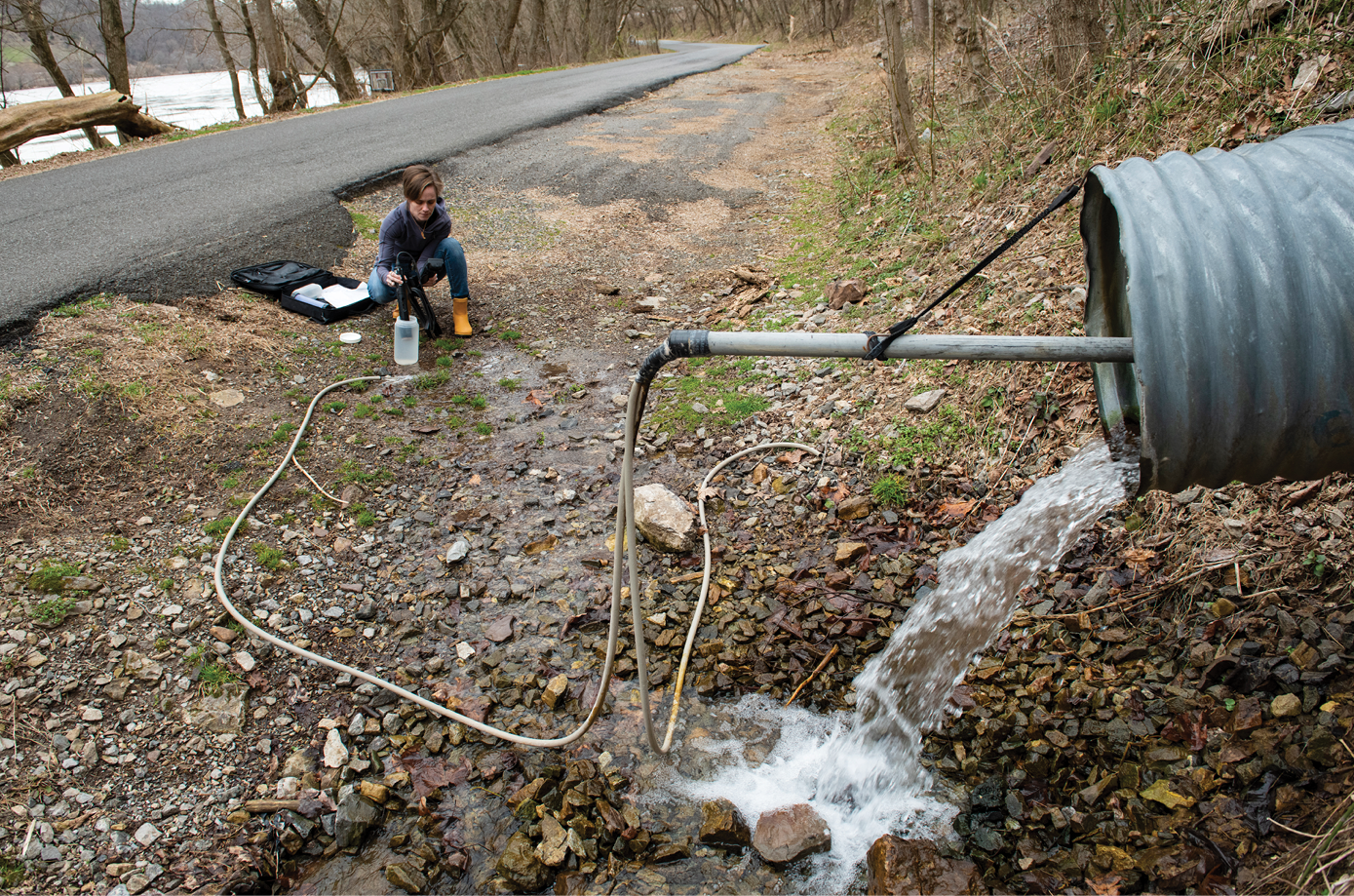
More than two million Americans live without access to safe drinking water or adequate sewer sanitation, according to a 2019 study by the U.S. Water Alliance. The biggest chunk, though — around 1.4 million people — are United States residents who live in homes that don’t have proper plumbing or tap water.
Leigh-Anne Krometis (’02, ’04), an associate professor of biological systems engineering, is one of the foremost experts on Appalachian water quality and availability. In the past three years, Krometis has authored a series of studies of water quality and availability in the Appalachian region. In 2017, she published the journal article “Tracking the Downstream Impacts of Inadequate Sanitation in Central Appalachia.”
“The technologies that are best practices in Africa or Southeast Asia are not used in the United States. That's unacceptable because we’re a developed country,” she said. “But in my mind, if you have somebody who’s impoverished and doesn’t have access to clean water, that’s a problem that we need to address.”
